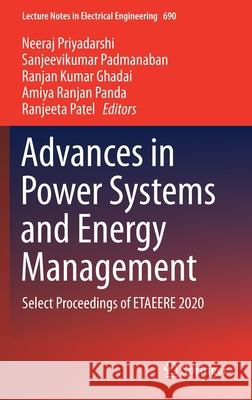Advances in Power Systems and Energy Management: Select Proceedings of Etaeere 2020 » książka
topmenu
Advances in Power Systems and Energy Management: Select Proceedings of Etaeere 2020
ISBN-13: 9789811575037 / Angielski / Twarda / 2021 / 682 str.
Advances in Power Systems and Energy Management: Select Proceedings of Etaeere 2020
ISBN-13: 9789811575037 / Angielski / Twarda / 2021 / 682 str.
cena 1328,44
(netto: 1265,18 VAT: 5%)
Najniższa cena z 30 dni: 1272,31
(netto: 1265,18 VAT: 5%)
Najniższa cena z 30 dni: 1272,31
Termin realizacji zamówienia:
ok. 16-18 dni roboczych.
ok. 16-18 dni roboczych.
Darmowa dostawa!
Kategorie:
Kategorie BISAC:
Wydawca:
Springer
Seria wydawnicza:
Język:
Angielski
ISBN-13:
9789811575037
Rok wydania:
2021
Wydanie:
2021
Numer serii:
000367340
Ilość stron:
682
Waga:
1.14 kg
Wymiary:
23.39 x 15.6 x 3.81
Oprawa:
Twarda
Wolumenów:
01
Dodatkowe informacje:
Wydanie ilustrowane











